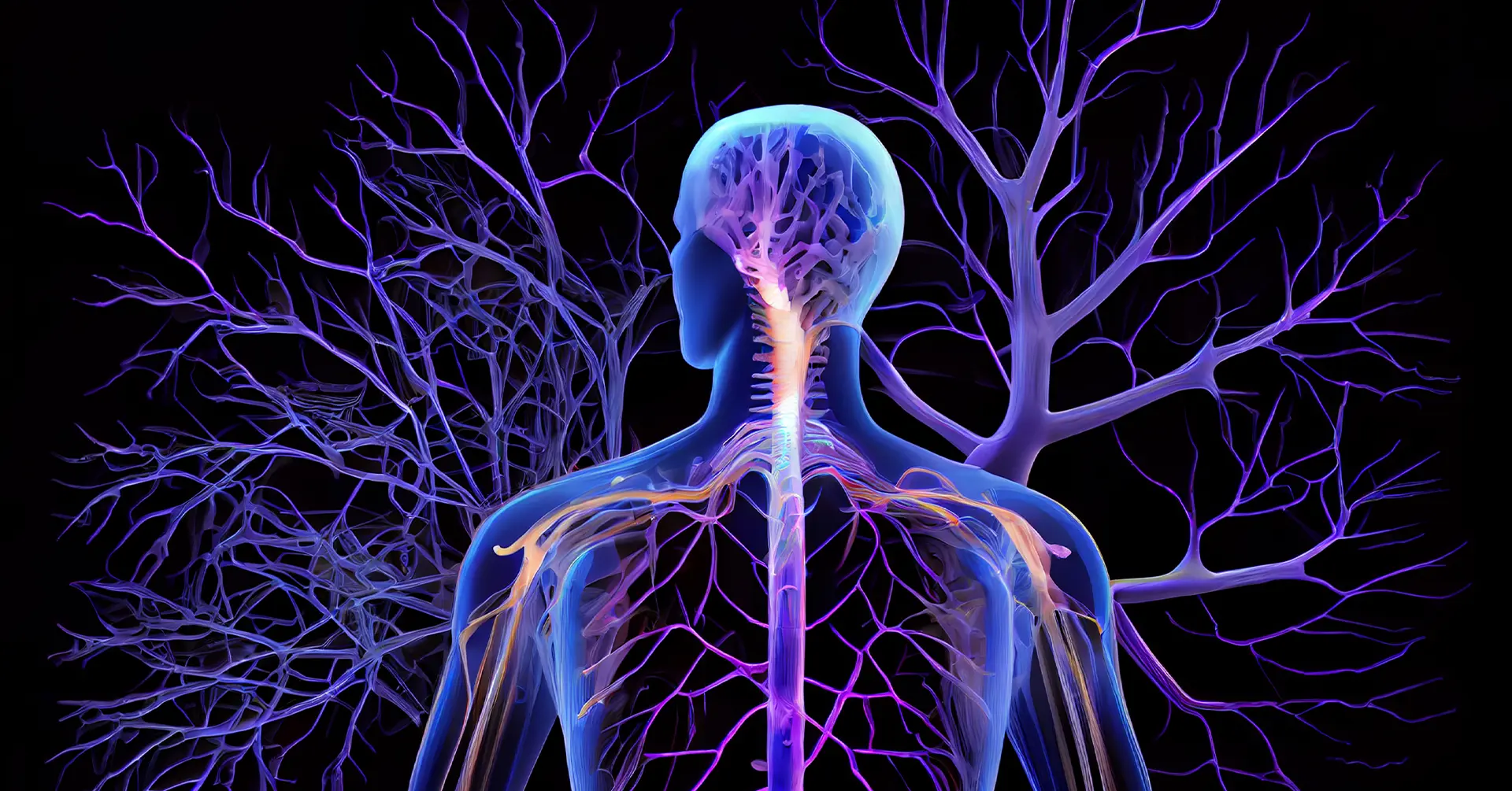If you’re constantly feeling stressed or on edge, it’s essential to understand how to balance the nervous system. Your nervous system plays a crucial role in maintaining your overall well-being, and when it becomes dysregulated, it can lead to various physical and mental health problems. This article will guide you on achieving a balanced nervous system, reducing stress, enhancing mental clarity, and building resilience to everyday challenges.
Understanding General Adaptation Syndrome (GAS)
General Adaptation Syndrome (GAS) is a concept in stress physiology that describes how the body responds to stressors. GAS consists of three distinct phases: Alarm, Resistance, and Exhaustion. These phases play a crucial role in understanding how the body copes with stress and how to balance the nervous system effectively.
Phase 1: Alarm
The Alarm phase is the body’s initial response to a stressor. This phase is often referred to as the “fight or flight” response. During this stage, the sympathetic nervous system (SNS) becomes activated. Key features of the Alarm phase include:
- Heightened Alertness: The body becomes acutely aware of the stressor, and the brain signals the release of stress hormones like adrenaline and cortisol.
- Physical Changes: Heart rate increases, breathing becomes rapid, and blood sugar levels rise to provide immediate energy for a potential threat.
- Focused Energy: The body redirects resources away from non-essential functions, such as digestion, toward systems necessary for a rapid response.
Phase 2: Resistance
The Resistance phase occurs when the body attempts to adapt to the ongoing stressor. It involves efforts to restore balance and cope with the stress’s demands. In this phase:
- Stress Response Continues: While the initial alarm reaction subsides, the body remains on high alert, maintaining elevated levels of stress hormones.
- Adaptation: The body tries to adapt to the persistent stressor by allocating resources to manage it effectively.
- Physical and Mental Strain: Prolonged stress during the Resistance phase can lead to physical and mental strain, impacting overall well-being.
Phase 3: Exhaustion
The Exhaustion phase is reached when the body’s resources are depleted, and it can no longer cope with the stressor effectively. This phase can have detrimental effects on physical and mental health:
- Resource Depletion: The body’s ability to maintain elevated stress responses becomes compromised, leading to fatigue and decreased resilience.
- Health Consequences: Prolonged exposure to the Exhaustion phase can contribute to various health issues, including chronic fatigue, weakened immune function, and increased vulnerability to illnesses.
- Balancing the Nervous System: Recognizing the signs of the Exhaustion phase is crucial for restoring balance to the nervous system. It emphasizes the importance of stress management and self-care practices.
How to Balance the Nervous System During GAS
Balancing the nervous system during the General Adaptation Syndrome involves recognizing the stages of GAS and taking proactive steps to manage stress effectively. This may include implementing relaxation techniques, maintaining a healthy lifestyle, and seeking support when needed. Understanding these phases of GAS provides insight into the body’s stress response and highlights the significance of stress resilience for overall well-being.
Understanding Stress: Definition and Impact
Stress: A Multifaceted Challenge
Stress, in its various forms, poses a complex challenge to our well-being. It’s not just external pressures or demands; it’s also about how we internally respond to these stressors. This section delves into the definition of stress and the pivotal role played by our internal reactions in shaping our stress responses.
Defining Stress
Before exploring the intricacies of stress, it’s crucial to define what stress is. Stress can be broadly defined as the physiological or psychological response to internal or external stressors. These stressors can encompass a wide range of stimuli, from environmental factors to emotional reactions, and even hormonal imbalances.
The Internal Mechanism: How We React to Stress
While external stressors are undeniable contributors to our stress levels, it’s equally important to recognize the significance of our internal reactions. How we interpret and respond to stressors internally can profoundly impact our overall stress levels and its subsequent effects on our nervous system.
Balancing the Nervous System: The Key to Stress Management
Understanding how we react internally to stress is a crucial step in managing and mitigating its effects. To effectively balance the nervous system and reduce the negative impact of stress, it’s essential to gain insights into our internal reactions and responses. In the following sections, we will explore strategies and techniques for achieving this balance and fostering stress resilience.
Week 1: Mindfulness and Self-Reflection
Understanding the Key to Balance
In the first week of your journey towards a balanced nervous system, we delve into the fundamental concepts of mindfulness and self-reflection. Discover the importance of self-awareness and learn how to identify signs of stress dominance. Begin the process of rewiring your neural circuitry by understanding the power of your thoughts and emotions.
Week 2: Diet and Nutrition
Nourishing Your Way to Resilience
Week 2 focuses on the crucial role of diet and nutrition in achieving stress resilience. Explore dietary recommendations that support your nervous system’s equilibrium. Learn how to optimize cortisol levels through dietary choices and targeted nutrients. Discover the impact of your daily food habits on your overall well-being.
Week 3: Supplements and Support
Boosting Resilience with Supplements
In the third week, we dive into the world of supplements and their role in balancing the nervous system. Explore a range of supplements that can regulate your nervous system quickly and effectively. Learn about magnesium threonate, HPA adapt, ashwagandha, rhodiola rosea, Siberian ginseng, maca, and L-theanine, and their benefits in managing stress.
Week 4: Building Resilience and Habits
Conditioning Your Stress Resilience
As you reach the final week of our 4-week protocol, it’s time to put your newfound knowledge into practice. Discover habit-forming skills that will set the foundation for long-term nervous system balance. Explore mindfulness techniques to handle stressors differently and condition your body and mind. Embrace the discomfort and watch yourself grow resilient.
Understanding Cortisol: The Stress Hormone
Cortisol, often referred to as the “stress hormone,” plays a pivotal role in our physiological response to stress. It is crucial to comprehend how cortisol functions in the body and its effects on our overall well-being.
The Impact of Cortisol
Cortisol is a hormone secreted by the adrenal glands in response to various stressors, both internal and external. It serves essential functions in maintaining bodily processes, including metabolism, blood pressure regulation, and immune system support. However, an excessive or prolonged release of cortisol can lead to adverse effects on our health, contributing to stress-related issues.
How to Balance the Nervous System
Balancing cortisol levels is a key component of maintaining a healthy nervous system. Strategies to achieve this balance include stress management techniques, lifestyle adjustments, and dietary considerations.
Exploring the Human Nervous System
The human nervous system is a remarkable and intricate network responsible for processing information from our environment and generating behavioral responses. Understanding its complexities is fundamental to comprehending how stress affects our body and mind.
Information Processing and Behavioral Responses
Our nervous system plays a vital role in processing sensory information, emotional stimuli, and environmental cues. It then translates this information into various behavioral responses, affecting how we react to stressors in our daily lives.
How to Balance the Nervous System
To maintain a balanced nervous system and mitigate the negative impacts of stress, it is crucial to implement strategies that promote relaxation, resilience, and overall well-being. These strategies encompass stress reduction techniques, lifestyle adjustments, and practices that support both physical and mental health.
Final thoughts
In conclusion, understanding and actively managing our nervous system’s balance is paramount in today’s fast-paced world. The intricate interplay between stress, cortisol, and our nervous system underscores the importance of adopting proactive measures to promote resilience and well-being. By recognizing the signs of a dominant sympathetic nervous system, embracing positive thought patterns, and incorporating stress-reduction techniques into our daily lives, we can achieve equilibrium and safeguard ourselves against the myriad health issues associated with chronic stress. With dedication and mindfulness, we have the power to rebalance our nervous system, enhance our quality of life, and foster a healthier, more resilient self.






